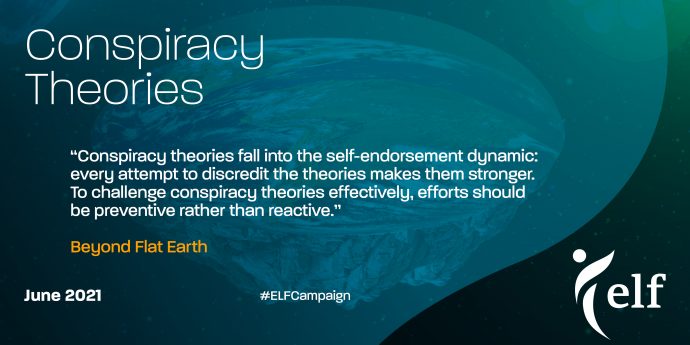Conspiracy Theories
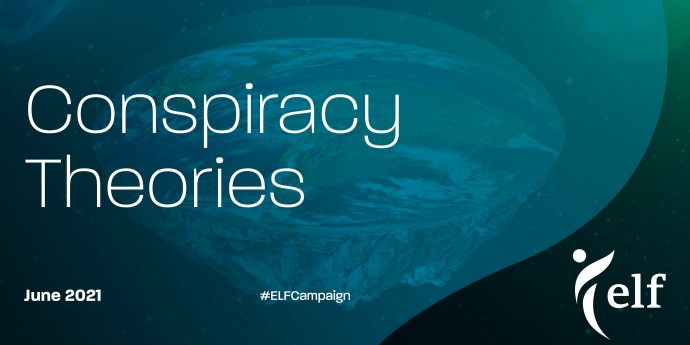

During the month of June 2021, together with Projekt:Polska, the European Liberal Forum shed light onto the complex world of disinformation. We raised awareness about the dangers of this phenomenon and shared possible solutions to fight it.
Understanding conspiracy theories is key to devising strategies to tackle them, and this is exactly what we did. During the first part of the month, we learnt that a conspiracy theory is “the belief that events are secretly manipulated behind the scenes by powerful forces with negative intent”. We further identified 6 key elements that would allow us to detect one.
We continued our journey by understanding what conspiracy theories potentially offer to their supporters. We invited Simon Granroth to the European Liberal Podcast where he analysed the psychological traits conspiracy theories believers may have and decoded why people still believe in such theories.
Talking about conspiracy theories in our times, we couldn’t forget Covid-19 conspiracy theories or Russian and Chinese disinformation strategies. Together with the ALDE Party and Renew Europe MEPs we demystified false claims about Covid-19 vaccines. We also had the pleasure to welcome Martyna Bildziukiewicz, Head of the East Strat Com Task Force to discuss Russian disinformation campaigns and how the EU combats them.
We learnt that combating conspiracy theories is harder than it sounds as they fall into the self-endorsement dynamic due to which every attempt to discredit the theories makes them stronger. In this context, the role of civil society organisations is key to encouraging critical thinking and demystifying false theories.
A few years ago, Europeans associated conspiracy theories with harmless lunacy. Now, the Covid-19 pandemic and the rise of far-right populism have brought conspiracy theories to the forefront of European consciousness, showing how dangerous they can be. We have now understood that conspiracy theories have enormous potential to engage people, organise and direct their actions in public sphere.
Understanding conspiracy theories is key to devising strategies to tackle them. Hence why, during the month of June 2021, together with Projekt:Polska, we shed light onto the complex world of disinformation. We will raise awareness about the dangers of this phenomenon and share possible solutions to fight it.
Access the full publication ‘Beyond Flat Earth: European Liberals vs Conspiracy Theories’ here.
Conspiracy Theories: Defined
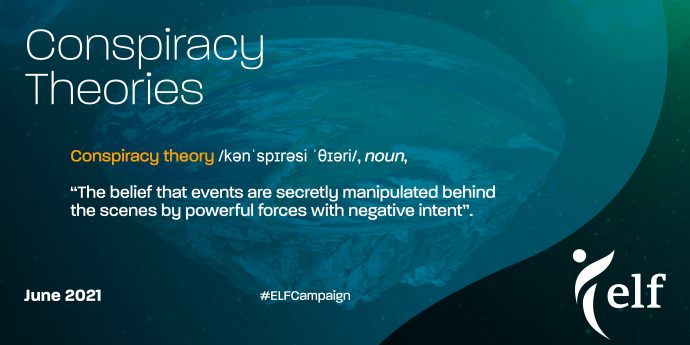
How do conspiracy theories emerge? And why do people still believe in them?
How do you spot a conspiracy theory?
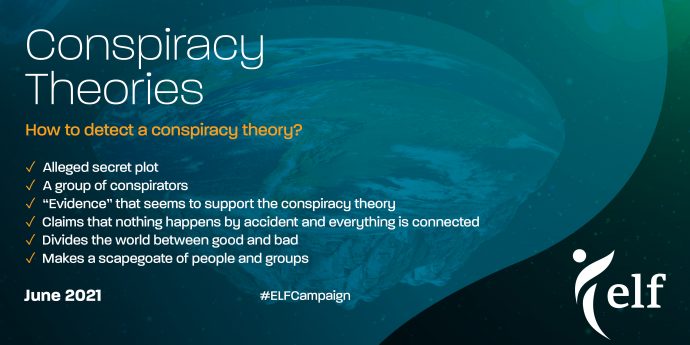
Hate Based Conspiracy Theories
A Hate Based Conspiracy Theory may be defined as a conspiracy theory that pinpoints at a particular group, on the basis of its personal characteristics such as race, ethnic origin, religion or belief, among others, as the main ‘conspirators’ or as groups that have a relevant role in the conspiration. Read more here.
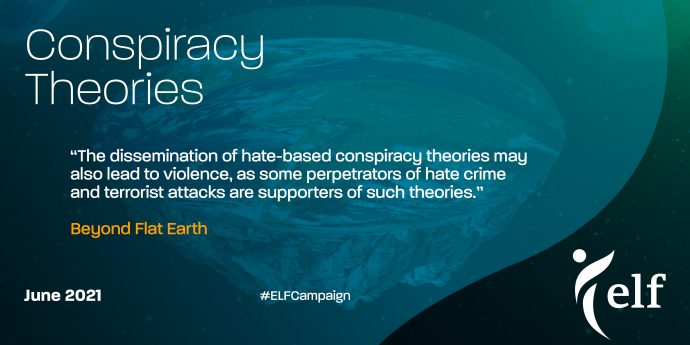
Conspiracy Theories and International Relations
Chinese and Russian disinformation campaigns are grave transnational threats for the European Union.
Find out more about this phenomena by reading our policy paper ‘The Rise of China in the Information Domain?: Measuring Chinese Influence in Europe during the Covid-19 Pandemic.
Listen to our podcast with Martyna Bildziukiewicz, head of the East StratCom Task Force.
Combating Conspiracy Theories
